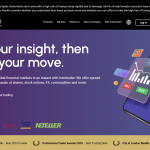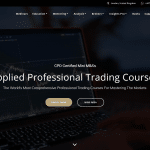A forex broker is a financial services company that provides traders with access to a platform for buying and selling foreign currencies. Acting as an intermediary between retail traders and the global currency markets, forex brokers enable individuals and institutions to speculate on exchange rate movements, hedge international exposures, or facilitate currency exchange.
This article explains what a forex broker is, how they operate, the different types, and what to look for when choosing one — whether you’re a beginner or an experienced currency trader.
Understanding the Role of a Forex Broker
What Forex Brokers Do
Forex brokers provide the technological and financial infrastructure needed to trade currency pairs such as EUR/USD, GBP/JPY, or USD/CHF. Their core services include:
- Market access to the interbank or ECN market
- Trading platforms like MT4, MT5, or proprietary systems
- Leverage and margin trading
- Spreads and commission structures
- Risk management tools and account management features
They make money through either spreads, commissions, or a combination of both.
How They Work
When a trader places an order to buy or sell a currency pair, the broker executes that order — either by matching it internally (market maker model) or by routing it to a liquidity provider (ECN/STP model).
- Market Makers: Quote both bid and ask prices and take the opposite side of your trade.
- ECN/STP Brokers: Route orders to third-party liquidity providers and operate with minimal interference.
Types of Forex Brokers
Market Maker (Dealing Desk) Brokers
These brokers create their own internal market. They typically offer fixed spreads and may profit from client losses. Suitable for beginners due to predictable costs, but may involve conflict of interest.
STP (Straight Through Processing) Brokers
STP brokers pass client orders directly to external liquidity providers without a dealing desk. They often offer variable spreads and faster execution with reduced conflict of interest.
ECN (Electronic Communication Network) Brokers
ECN brokers connect traders directly with a network of banks and institutions. Orders are matched with the best available bid/ask. ECN brokers offer raw spreads and charge commissions per trade.
Key Features to Look for in a Forex Broker
Regulation
Reputable forex brokers are regulated by authorities like the FCA (UK), ASIC (Australia), CySEC (Cyprus), or NFA (US). Regulation ensures client fund segregation, transparency, and protection from fraud.
Platform and Tools
The broker should offer a stable, user-friendly trading platform such as:
- MetaTrader 4 (MT4): Ideal for technical analysis and automated trading
- MetaTrader 5 (MT5): Multi-asset trading with faster execution
- cTrader: Known for transparency and Level II pricing
- Proprietary platforms: Customised with exclusive features
Account Types and Leverage
Look for brokers that offer multiple account tiers, including demo, standard, ECN, and professional accounts. Leverage options can vary significantly:
- EU/UK retail leverage limit: 1:30
- Offshore brokers: Up to 1:1000 or more
Spreads and Trading Costs
- Tight spreads: Ideal for scalping and day trading
- Low commissions: ECN brokers often charge per trade
- Swap-free accounts: For traders who don’t want overnight interest
Customer Support and Funding Options
Reliable support and seamless deposits/withdrawals are essential. Leading brokers offer:
- 24/5 multilingual live chat
- E-wallets, cards, crypto, and local bank methods
- Same-day withdrawal processing
Key Takeaways
- A forex broker provides access to global currency markets through a trading platform.
- Brokers may operate as market makers or use ECN/STP models to route orders to liquidity providers.
- Regulatory oversight is critical for safety and transparency.
- Look for brokers with low spreads, reliable platforms, and good customer service.
- Demo accounts allow new traders to practice with zero risk.
Frequently Asked Questions
What is the role of a forex broker?
A forex broker acts as an intermediary between traders and the foreign exchange market, enabling the buying and selling of currency pairs.
How do forex brokers make money?
Brokers earn revenue through spreads (the difference between the bid and ask prices) and/or commissions charged per trade.
Is it safe to use a forex broker?
It is safe to use a forex broker if they are regulated by a reputable financial authority such as the FCA, ASIC, or NFA.
What’s the difference between ECN and market maker brokers?
ECN brokers connect clients directly to liquidity providers and offer raw spreads, while market makers internalise orders and offer fixed spreads.
Can I start forex trading without a broker?
No. A forex broker is essential for accessing the live interbank market. You need one to place and manage trades.




Leave a Reply
Please log in or register to share your thoughts.